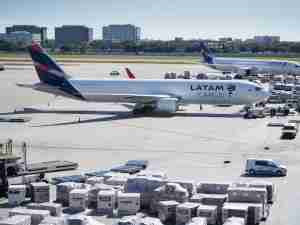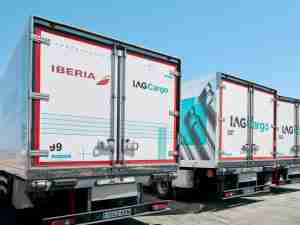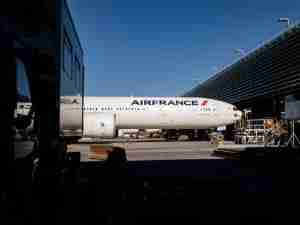Southwest Airlines Co. said it’s facing high costs and delays in aircraft deliveries from Boeing Co., tarnishing a quarter in which the carrier topped Wall Street’s profit expectations on rebounding summer travel.
The airline will receive 66 jets this year, down sharply from its prior plan for 114 deliveries, Southwest said Thursday in a statement. That puts further pressure on the company as it tries to capitalize on robust demand and recover from a slump early in the pandemic.
“Despite those delays, we are confident about our ability to fly our flight schedules as planned,” Chief Executive Officer Bob Jordan said in the statement. “Travel demand surged in the second quarter, and thus far, strong demand trends continue.”
The delivery issue adds to challenges facing US carriers already grappling with flight disruptions, labor shortages and rising costs. Southwest, like its rivals, said economic volatility hasn’t had a major impact on consumers’ willingness to shell out for pricey plane tickets.
See also: Summer Airfares Show Signs of Peaking on Inflation Pressure
The carrier’s results were also hurt by rising non-fuel costs and revenue predictions below expectations, Helane Becker, a Cowen analyst, said in a note. “We expect this to pressure shares as investors grapple with signs of decelerating demand and cost headwinds.”
Southwest shares fell 6.4% at 9:33 a.m. in New York. The shares dropped 4.8% this year through Wednesday’s close.
Steady Capacity
Flying capacity will be flat in the third quarter compared with 2019 levels, Southwest said, and down about 4% for the full year, consistent with an earlier projection. Non-fuel costs to fly each seat a mile will rise as much as 15% in the third quarter and as much as 16% for the year because of higher labor costs, benefits and airport expenses.
Southwest’s capacity plans buck a trend among its largest rivals to slow expansion. Airline and airport labor shortages, air traffic control issues and weather have forced some carriers to park planes and cut flights just as consumer travel demand was rebounding. Carriers including United Airlines Holdings Inc. and Delta Air Lines Inc. have extended constraints on flying in an effort to reduce delays and cancellations during the rest of 2022.
Southwest is sticking to its flying schedule despite slower aircraft deliveries. Supply-chain issues affecting Boeing and sluggish US certification of the 737 Max 7 contributed to the delay, Southwest said.
The carrier is now set to receive 66 Max 8 aircraft and no Max 7s in 2022, with some others shifting into next year. This month, Southwest converted 48 firm orders for Max 7s to Max 8s in 2023, following similar such changes earlier this year.
Leisure bookings, average fares and the number of passengers per plane look strong beyond the Labor Day holiday in September, Southwest said. Corporate sales are expected to improve from the second quarter and be down 17% to 21% from pre-pandemic levels in the third quarter.
The carrier has increased the number of shorter flights in business markets compared to the first half of the year to both stabilize operations and accommodate returning corporate demand.
Earnings Beat
Adjusted income in the past quarter was $1.30 a share, Southwest said, compared with the $1.17 average of analyst estimates compiled by Bloomberg. Revenue climbed to a record $6.73 billion, while analysts had expected $6.66 billion.
Southwest also said Thursday it’s eliminating the expiration date on credits for non-refundable tickets that were purchased and not used, diverging from the industry norm of allowing one year to use such fares. The change applies to flight credits not expired as of July 28, or created on or after that date.
“Introducing this change in our policy is part of a massive effort to improve the things that are most important to our customers,” Tony Roach, vice president of customer experience and engagement, said in a statement.








